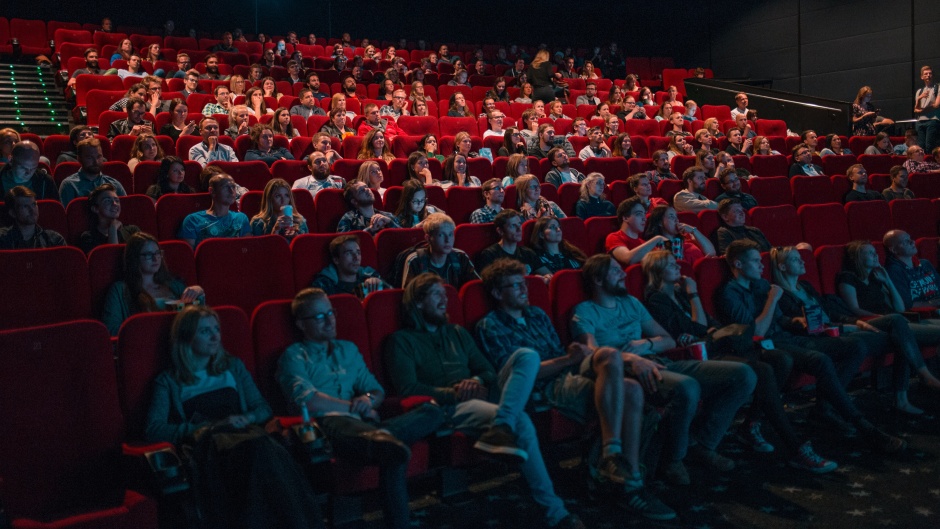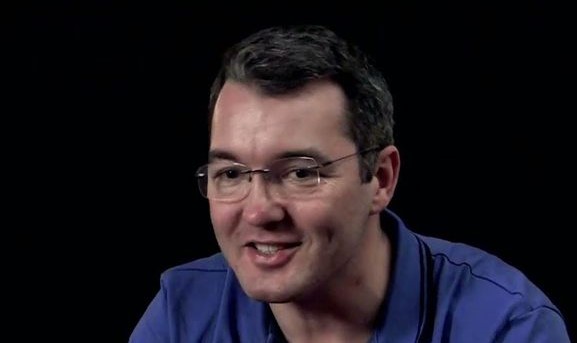“Film has loads to teach us about what people think”
Christians should “mirror Jesus' example in using culture to communicate the gospel”, says Tom Price, a lecturer at the Oxford Centre for Christian Apologetics.
FOCL · WISLA (POLAND) · 02 MARCH 2023 · 16:00 CET

Why do some films connect with us so deeply and speak to us so powerfully? Could they be an effective evangelistic tool?
According to Tom Price, a lecturer at the Oxford Centre for Christian Apologetics (OCCA), “film has loads to teach us about the ways people are thinking [...] it can equip evangelists to see where people are”.
“The rationale for using art, movies, film, literature in our outreach is that we are mirroring Jesus', God's and Paul's examples in using culture to communicate, and to make sure that the gospel is not just heard but understood”, pointed out Price in an interview for the European Leadership Forum.
Price recommends “not to pick massively controversial films, but thoughtful comedies, where an important topic is discussed but with a light-hearted edge”.
Read the interview below.

Question. What is the theology behind using film in evangelism?
Answer. In Acts 17 the Apostle Paul wants to reach out to non-believing gentiles, and these are people for whom their source of information about what's spiritual and what's worth living for is not the Hebrew law and Prophets, not the Old Testament.
Where that is the case, where he is reasoning with Jews and the synagogue, he will start with the Old Testament scriptures proving that Jesus is the Messiah and the Christ. But where he is seeking to reach Gentiles, he will start with their philosophical landscape, their stories. Paul will start with the Greek gods, Aratus or Epimenides, or the altar to the unknown God.
I think we see Jesus doing the same sort of thing where he asks questions that take him into the world of the listener. He tells parables to invite them into the world of the Kingdom.
Where we see God reaching out, I think we see God contextualizing and going to where individuals are. God does not reach out to any two individuals in the same way and so the rationale for using art, movies, film, literature in our outreach is that we are mirroring and following Jesus', God's and Paul's examples in using culture to communicate, and to make sure that the gospel is not just heard but understood.
People get why it is a message of hope and life and truth and, in the same way, they are not likely to mishear it.
That helps to alleviate the problem of them thinking they've heard it, and thinking they understand it. If we can communicate it in their stories and through their concepts, then they will hear it afresh.
Q. What benefits can film offer to an evangelist?
A. Film is useful for some types of evangelism, it can inform many types of evangelism much more broadly that it can be used in, because film is like a bit of a mirror and we can see the things that people are living for, the things that people are wondering about. It will reflect back to us the questions of the culture which it comes from.
You might look at a particular area, like detective fiction, and in many detective fiction stories you have a discussion of human nature.
How human beings do the awful things the perpetrators do, then you have the struggle of the detectives, the police or the investigators to try to bring light into the darkness that sometimes has been created by human nature. They're trying to solve and figure out what has happened.
Then, you've got a search for justice, a search for truth, you've got a search for the restoration of order, as well as descriptions of all the different things that can get in the way of all that.
That's a lovely mirror to be able to say: okay, I can now understand a little bit of the struggles that culture is recognizing, by hearing things, understanding things, letting the light in. That can inform an evangelistic strategy, because we also are dealing with these same questions.
How can we help people to confront what human nature is really like? How can we help people to accept a solution to reforming and transforming human nature? How can we help them to see where they might resist? And how can we help them to work out how they might respond to it coming into the light, seeing the truth and letting order be restored in their lives, which leads to freedom and liberty?
Film has loads to teach us about the ways that people are thinking, they teach us about human insight, human perception, human questioning, they teach us about the realities that people live in.
Film can be a vehicle, a bridge by which we can cross over into the ways people are thinking about the world.
Most of us end the day watching an episode of our favourite series, or a series we're watching on the streaming service of some kind. Wouldn't it be amazing if the gospel was understood and could be communicated in those sorts of idioms and those sorts of concepts as well? That we could actually have a conversation about how there are so many parallels in culture with the truths of the gospel.
Evangelists can use clips in their talks, or can connect with the things people are thinking about, so that they can communicate the unchanging gospel in the changing language and thought.
Q. What are some examples of discussion questions that can stir evangelistic engagement with a film?
A. I would be asking people: what do you think that film was about? What do you think it was getting at? What was the main topic that it was interested in?
Was it getting at freedom like in Shawshank Redemption? Was it getting at memory and time, like in movies like Inception or Memento? Was it getting at questions of human nature or questions of hope?
That's the primary question. And then I think I want to be asking questions like what were my favourite scenes? What were your favourite moments? What were the characters you most related to? What were the insights that the film seemed to offer? What was the solution that the film offered? W
hat, in the middle of the story, was the thing that brought about the turnaround, the redemptive change or arc that transformed the outcomes for the main protagonists?
All of these questions could really engender and cultivate a really fun conversation about the film.
And then we can make the conversations a little more personal. We can get to the point where we might say: well, do you relate to the struggle for freedom in any way in your life? That might be a second stage, but we can start to make those questions a bit more grounded in our lives instead of just talking about the art.
Q. What are some practical considerations when selecting a film to use in an outreach event?
A. For a public film viewing that you can build relationships through, or for a discussion where people can come and they can chat after the film, or you might show some clips and then put discussions around. In all these cases, the sorts of films that I would pick wouldn't be massively controversial films, I'd pick thoughtful comedies.
Things like a Jim Carrey or a Will Ferrell comedy like Stranger than fiction or something like that, where an important topic is discussed but with a light-hearted edge.
I wouldn't recommend picking a really strong gangster film or war film at first, unless you really know the audience who are going to come to your film viewing. Instead, I'd pick something that was quite palatable: not too much sex, not too much violence, certainly not too much bad language, but just something that will get people talking about the key ideas and the key themes in the film itself.
You don't want people to get distracted by worries about whether this is healthy or not, you want people to be able to engage with it.
But I would pick a secular film and not a Christian film, because that's where people are and that's what people are watching. So that I wouldn't say: you've got to come into Christian culture, watch a Christian film, but: I show you a secular film that was poignant and got at some big questions.
About Tom Price
Tom Price is a lecturer at The Oxford Centre for Christian Apologetics (OCCA) and was made an Archbishop’s Evangelist in 2019.
He has experience and interest in outreach, cultural engagement, Bible teaching, and discipleship. He has degrees in Philosophy and Christian Apologetics and is currently undertaking doctoral research in theology, philosophy, and film at Aberdeen University.
Tom is married to Caroline, and they are raising three children in Oxford.
Published in: Evangelical Focus - life & tech - “Film has loads to teach us about what people think”
More News
Most read
Since you are here…
Evangelical Focus is a news and opinion platform that brings together Christians from across Europe and other parts of the world. We need the support of our readers to make this media project sustainable in the long term. You can support our work! Read about Evangelical Focus’s sustainability here.
Would you like to support the work of Evangelical Focus?
Use one of these methods. You can also transfer your donation to “Areópago Protestante / Evangelical Focus” IBAN: ES8521000853530200278394 (Swift / BIC: CAIXESBBXXX). Subject: “Donation Evangelical Focus”
